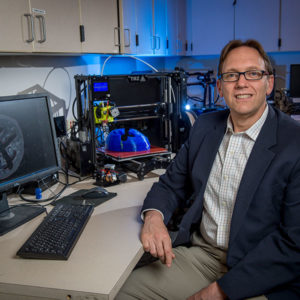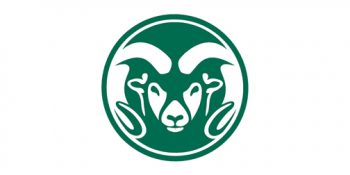Colorado State University generated $338.4 million in research expenditures in Fiscal Year 2017, a boost of nearly 2 percent, which affirms the university’s research prowess in the face of downward trends in national research support. CSU researchers were also issued a record 66 patents in that same timeframe, an indication of the university’s strength in innovation.

This marks the 10th consecutive year research expenditures at the university have topped $300 million. The $338.4 million total is up from $332 million over the previous year. Research expenditures include money from federal, private, state and local organizations.
The figures were presented Oct. 6 at the CSU System Board of Governors meeting in Fort Collins.
Alan Rudolph, CSU’s vice president for research, said the numbers highlight the continued impact and performance of research at the university.
“Research is an integral part of our mission,” he said. “CSU is sustaining our position among top-tier universities and we’ve strengthened our position in some areas, based on the excellence of our faculty. We continue to address the unmet challenges of our day, including weather prediction and climate resiliency, translational medicine and infectious diseases, through research conducted by our faculty and students.”
Earlier this year, CSU broke ground for the C. Wayne McIlwraith Translational Medicine Institute, which promises medical innovations by harnessing the body’s healing powers to help animals and people suffering from a wide range of diseases. The facility will open in fall 2018.
Expenditures up from federal funding
Federal funding of research at CSU increased by 16 percent, to $247.3 million. On the national level, federal funding of research and development held steady in recent years, according to the American Association for the Advancement of Science.

CSU’s Cooperative Institute for Research in the Atmosphere, which earlier this year was awarded the CO-LABS Governor’s Award for High-Impact Research, had $27.4 million in research expenditures in FY 17. The team works on the nation’s newest weather satellite, in partnership with the National Oceanic and Atmospheric Administration.
Rudolph acknowledged that research universities face challenges when competing for federal funding.
“Funding for science is experiencing uncertain times and, yet, the importance of science in key issues facing our planet and our nation has never been more important,” he said. “CSU has positioned itself well as an objective source of discovery and translation of science and will continue to contribute objectively to the dialogue.”
Research spending on projects supported by the U.S. Department of Health & Human Services totaled $41.4 million, a slight increase from expenditures in the previous fiscal year of $37.3 million. U.S. Department of Defense-related expenditures were $58.8 million, a slight drop from $60.1 million in FY 16.
Expenditures supported by the National Science Foundation totaled $32.3 million in FY 2017.
Tech transfer sets new records
CSU Ventures, the university’s technology transfer office, continues to set new records.
The office negotiated 44 agreements with companies to license CSU technologies. In addition, researchers filed 101 invention disclosures and were issued 66 patents, nearly double the number from the previous fiscal year.
“We used to get a handful of patents issued each year and, with the university’s strong commitment to innovation and research, we now see numbers in the 60s,” said Todd Headley, president of CSU Ventures.

Licensing revenue for FY 17 totaled more than $3 million, and CSU Ventures also launched six new startup companies.
Headley said one of the highlights of the year was seeing VetDC, a university startup, receive FDA approval for Tanovea-CA1, a new drug to treat canine lymphoma. Veterinarians with CSU’s Flint Animal Cancer Center serve as key advisers for VetDC and played a key role in designing clinical trials to evaluate the full potential of the drug for canine cancer patients.
“We’re continuing to evolve, and to support the university as best we can,” said Headley. “I’m really encouraged by CSU faculty and industry engagement. We continue to see excellent participation.”
In 2016, CSU was designated an Innovation & Economic Prosperity University by the Association of Public and Land-grant Universities. The designation recognizes public research universities working with public and private sector partners in their states and regions to support economic development through a variety of activities, including innovation and entrepreneurship, technology transfer, talent and workforce development, and community development.
SPREAD THE NEWS
COMMENT, Like, Follow & SHARE @I70Scout
RELATED NEWS CURRENT EDITION
WEATHER & TRAFFIC PUZZLES RECENT NEWS ADVERTISE WITH US

Leave a Reply